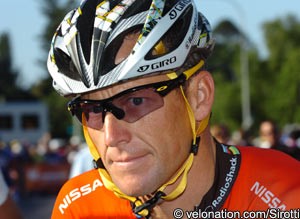Eyewear company explains why they waited for UCI ruling
 Oakley chief executive Colin Baden has opened up about the Lance Armstrong saga, saying that it is “sad”. The sports eyewear company dropped Armstrong after the UCI ruled they would support USADA’s recommendation of stripping the American of seven Tour de France titles.
Oakley chief executive Colin Baden has opened up about the Lance Armstrong saga, saying that it is “sad”. The sports eyewear company dropped Armstrong after the UCI ruled they would support USADA’s recommendation of stripping the American of seven Tour de France titles.
“The Lance story is a sad one, with our emotional connection with that athlete,” Baden told CNN.
“We have been very consistent in how we view cheating and we’ve always stuck with this over the 16 years I’ve been with the brand, so that if the governing body rules that an athlete has broken the rules, we can’t be a sponsor.
“I don’t think we’ll change any of our strategic views of who we want to promote the brand, but how that person behaves is critical to having a positive relationship.”
Baden said his personal emotional response to Armstrong is not anger but rather disappointment. He said, “I’m just left with the grief of what was a great story.”
Unlike Armstrong’s other sponsors, Oakley waited until the UCI’s ruling to sever ties with the disgraced cyclist. They told VeloNation at the time they don’t respond to hype but just to the law. Armstrong’s departure no doubt leaves a marketing gap for the company who sponsors other athletes like Valentino Rossi, Rory McIlroy and Fernando Alonso.
“I like to think of us as a premier sports performance company and we do really extreme product development — and sometimes the products we develop are unique and it requires somebody in what we call ‘the front row’ to explain to the masses that this is the best,” Baden said.
“So any athlete that we’re targeting to have a relationship with has to be perceived as the best. There’s a reason he’s choosing our products — it’s not because we pay him to do it, it’s because it pays to do it.”
Baden also told CNN they would not be following the likes of the Tour de France and SCA Promotions who have asked Armstrong to return prize money and bonuses.
Oakley had been a sponsor of Armstrong since early in his career, and helped pay for his cancer treatment through its insurance.